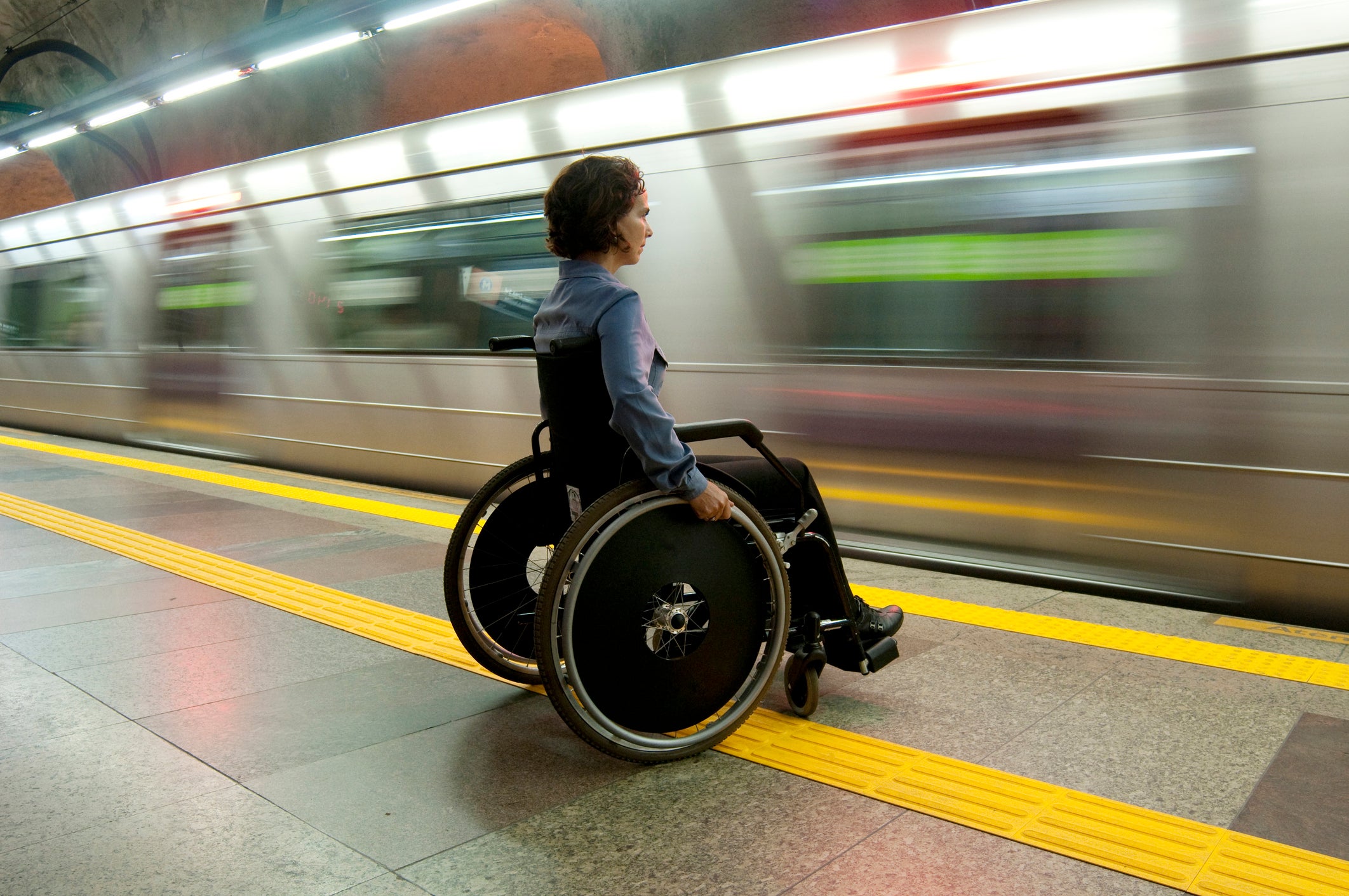Don’t believe the hype from transport companies, travelling with disabilities is still horrific
For people with disabilities, using public transport is a complicated, frustrating, often painful and always stressful experience. Sometimes it’s downright frightening


Your support helps us to tell the story
From reproductive rights to climate change to Big Tech, The Independent is on the ground when the story is developing. Whether it's investigating the financials of Elon Musk's pro-Trump PAC or producing our latest documentary, 'The A Word', which shines a light on the American women fighting for reproductive rights, we know how important it is to parse out the facts from the messaging.
At such a critical moment in US history, we need reporters on the ground. Your donation allows us to keep sending journalists to speak to both sides of the story.
The Independent is trusted by Americans across the entire political spectrum. And unlike many other quality news outlets, we choose not to lock Americans out of our reporting and analysis with paywalls. We believe quality journalism should be available to everyone, paid for by those who can afford it.
Your support makes all the difference.“We want the railways to be accessible for everyone,” declared Robert Nisbet, who bears the august title of director of nations and regions for the Rail Delivery Group, hailing the recognition of Sunflower lanyards across the network.
These allow people with hidden disabilities to declare themselves. We’re told staff are being trained to recognise them.
But the group, which brings together the companies involved in Britain’s privatised railway system, wants to make it clear that you’re not required to hold one to get the assistance you require. Phew! Thank goodness for that.
No, they’re simply there to provide those who wish to carry one with “extra reassurance”.
That sounds warm and fuzzy, and cuddly and caring doesn't it? Except that, and here’s the thing, very obviously disabled people are regularly left stranded on the platform when they try to use not just Britain’s chronically dysfunctional railways, but also public transport generally.
It’s usually only when a prominent, high profile person has a horror story to tell that people are given a window into just how rotten the system is but, honestly, I could probably write a column a day on the subject and it might still underestimate the scale of the problem.
“We’re constantly hearing from disabled people who are denied the opportunity to travel, book assistance that doesn’t turn up or have to deal with staff who are not responsive to requests for help,” says Fazilet Hadi, head of policy at Disability Rights UK. So am I.
It speaks volumes that people should feel the need to carry a card or wear a lanyard when they have conditions such as, say, autism. But the fact is, even if they do there are no guarantees that they'll get the extra help and assistance they need. To the contrary.
Hadi says that while the cards may help some disabled people feel more comfortable on trains, and that's clearly welcome, structural issues continue to “stop disabled people having the same opportunities as non-disabled people to use our public transport networks.”
As she says, a voluntary initiative like this one won’t help with those. Not in the slightest.
My own experience of using public transport, including the railways, is that it is a complicated, frustrating, often painful and always stressful experience. Sometimes it’s downright frightening. While I have had good experiences, I’ve also had problems with staff and, on occasion, been abused by other passengers.
To that extent, I would be very, very wary of having my son, who is autistic, wear a lanyard for fear it would end up with him being labelled and potentially targeted.
I imagine we’ll get him a card to carry in his wallet along with his autism awareness card. But will it do him much good if he encounters a problem? I have grave doubts.
The hard fact is that the claims the Rail Delivery Group has made about taking accessibility seriously “we’re also doing this, and this and this, yay us!” are directly contradicted by experiences of disabled people who use its services every damned day.
It’s not entirely the RDG’s fault. It is partly, and it badly needs its feet holding to the fire. But another big reason for the problem is the fact that Britain has for more than a decade suffered from a government that has treated its disabled citizens with a mixture of cruelty and contempt, at least when ministers don’t have photographers on hand to rustle up some people with mobility aids, or visual aids, or what have you, to line up and smile with them.
Their regressive messaging causes problems for disabled people every day. It helped fuel the people who abused me.
I dare say they’ll be after people using the lanyards next, perhaps to pose with the “minister for accessibility”. Apparently we have one of those, which I’ll admit is a new one on me.
The holder of said office, Chris Heaton-Harris, declared: "Our railways must be open to everyone, and the Sunflower lanyard is a brilliant initiative to help passengers with non-visible disabilities travel with confidence across the rail network.”
You know what would be really brilliant? A government minister doing something a bit more meaningful than adding his name to a press release, perhaps by taking meaningful steps to make travelling on public transport less of a miserable experience so horror stories are defined not by their frequency but by their rarity.
I’m afraid I’m not holding my breath.
Join our commenting forum
Join thought-provoking conversations, follow other Independent readers and see their replies
Comments